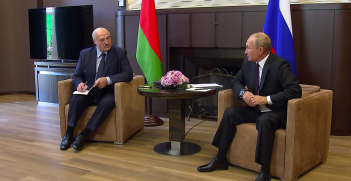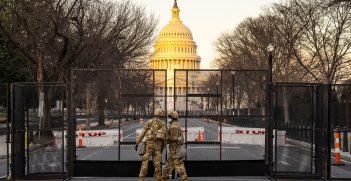The King and the Consort

The Thai king has sacked his consort and other palace officials. What looks like palace intrigue may be part of an attempt to centralise power around the throne.
Yet another extraordinary Thai story emerged in late October of the very public dismissal of the Royal Noble Consort of King Maha Vajiralongkorn (Rama X) of Thailand and of her being stripped of ranks, titles and privileges bestowed by the king over a considerable time.
Sineenat Bilaskalayani (later given the surname Wongvajirapakdi by the king) had been named minor wife of the king only a matter of weeks previously. She was formerly a nurse and member of the royal bodyguard and was the first consort to have been appointed (or “taken”) by a Thai king since early last century. She was accused in highly derogatory terms of having sought to make herself equal in status to the queen (Suthida). The queen herself was a flight attendant before recently becoming the fourth wife of the king. However eye-catching it is, though, the story of Sineenat’s downfall is really only one more in a growing trove of stories which do anything but flatter the king
The king has seven children in all: one by his first wife, five by his second, plus one young man by his third wife. The first wife is a cousin and is the only one to have been protected by the palace when her marriage ended. The second wife, along with the five children she had by the king, was banished from Thailand (though one of the children was subsequently allowed to return). The tawdry event gave rise to considerable excitement at the time.
It is not too long since the king rid himself of his third wife, Srirasmi, mother of his youngest child. This young man is now resident in Germany. During their time together Srirasmi and the king had provided questionable popular entertainment, for example when captured on a leaked titillating video shot in the grounds of the then crown-prince’s palace. The king divorced his third wife; and her parents and brothers were punished, after allegations were made that Srirasmi’s family was profiting from the association with the royal family. There are reports that Sineenat may have joined Srirasmi in being imprisoned.
With the widening spread of the use of smartphones and the proliferation of social media news of the king’s rages, vendettas, travels, excesses (such as his recent belated coronation) and doings in general quickly become known throughout the kingdom. One website in particular provides an extensive compilation, drawing on a range of publications outside of Thailand. On the other hand, there is little if any reference to stories within the mainstream media of Thailand.
Commentary on the royal family inside Thailand is strongly restricted by the lèse-majesté laws of the country (Section 112 of the Criminal Code). For over a hundred years the law has prohibited adverse comment on the monarch, other royals and even past monarchs, the monarchy and seemingly any adviser to the king. What constitutes an offence under Section 112 is quite unclear. The number of prosecutions has reportedly swelled in recent decades. The Thai web newspaper Prachatai (more specifically Prachatai English) published a report dated August 29, 2019, which claimed that 25 people are currently serving prison sentences imposed under Section 112. The reports in English language newspapers available in the country are often not attributed to particular authors but to nameless “correspondents.”
The king is widely known to spend a large amount of his time in Munich, which has caused the Thai government to open a consulate-general there, and flies between Bangkok and Munich at public expense (using either a Royal Thai Airforce Boeing 737 which he is said to pilot himself or a reserved Thai Airways airliner). One may well ask what the citizens of Thailand have to say about this and other examples of what looks like kingly disdain for his country and its citizens. One consequence of the king’s frequent absences from Thailand is that more and more of the duties of the royals falls on the shoulders of other members of the royal family and particularly the popular second sister of the king, Princess Maha Chakri Sirindhorn. Sympathy for the princess is commonly expressed at the same time as disapproval of the king.
Section 112 prevents proper reporting of very significant changes the king has brought about in relation to Crown Property and the control of the armed forces. In regard to Crown Property Bureau, Tom Felix Joehnk reported in a 2015 New York Times op-ed that the wealth of the CPB at that time was estimated to be in the order of US $53 billion, the revenue from which may be disposed of at “the king’s pleasure.” Most of the property at the time consisted of land and buildings in the city of Bangkok. A part of the portfolio consists of the Dusit Zoo and two nearby Rajabhat universities, Suan Dusit and Suan Sunandha. The zoo has been closed and is being moved to Pathum Thani, north of the city. The two universities are being closed. The CPB-owned site of the old parliament building will also be vacated with the opening of a large new building on the Chao Phraya River at Kiak Kai. The upshot will be a large area of vacated land which the CPB will make available for ‘development’. It is to be noted that the king is now effectively running the CPB, apparently in his own interest.
The web-based news site Asia Sentinel is pursuing the line that the king is attempting to restore the absolute monarchy which was displaced by the revolution of 1932. Thus in its October 9 report it states:
This year, when the prime minister and cabinet ministers took the oath of office, which included a pledge of loyalty to the king and to perform duties for the benefit of the country and the people, a final sentence swearing to uphold and comply with the constitution disappeared. Prime Minister Prayuth Chan-ocha said the omission was unintentional. Many in Bangkok believe the king ordered it stricken.
The report goes on to attribute to a source who refused to be named the following claim:
What is happening now is a fundamental re-altering of the palace-military relationship as Rama X pursues his dream of being an absolute monarch who rules completely unchallenged.
For the people of Thailand the sacking of the Royal Noble Consort is symptomatic of the attitude of the king towards them. For countries having to deal with the government of Thailand it is one of a number of recent stories indicating a change in the authority of the military-backed government. If the line being pushed by the journal Asia Sentinel is correct, what price the word of even the hitherto powerful Prime Minister Prayuth Chan-o-cha when in the background is a king with increasingly absolutist tendencies?
Dr Gavan Butler is honorary associate in political economy at the University of Sydney. He is also a member of the editorial committee of the Journal of Australian Political Economy.
This article is published under a Creative Commons Licence and may be republished with attribution.





